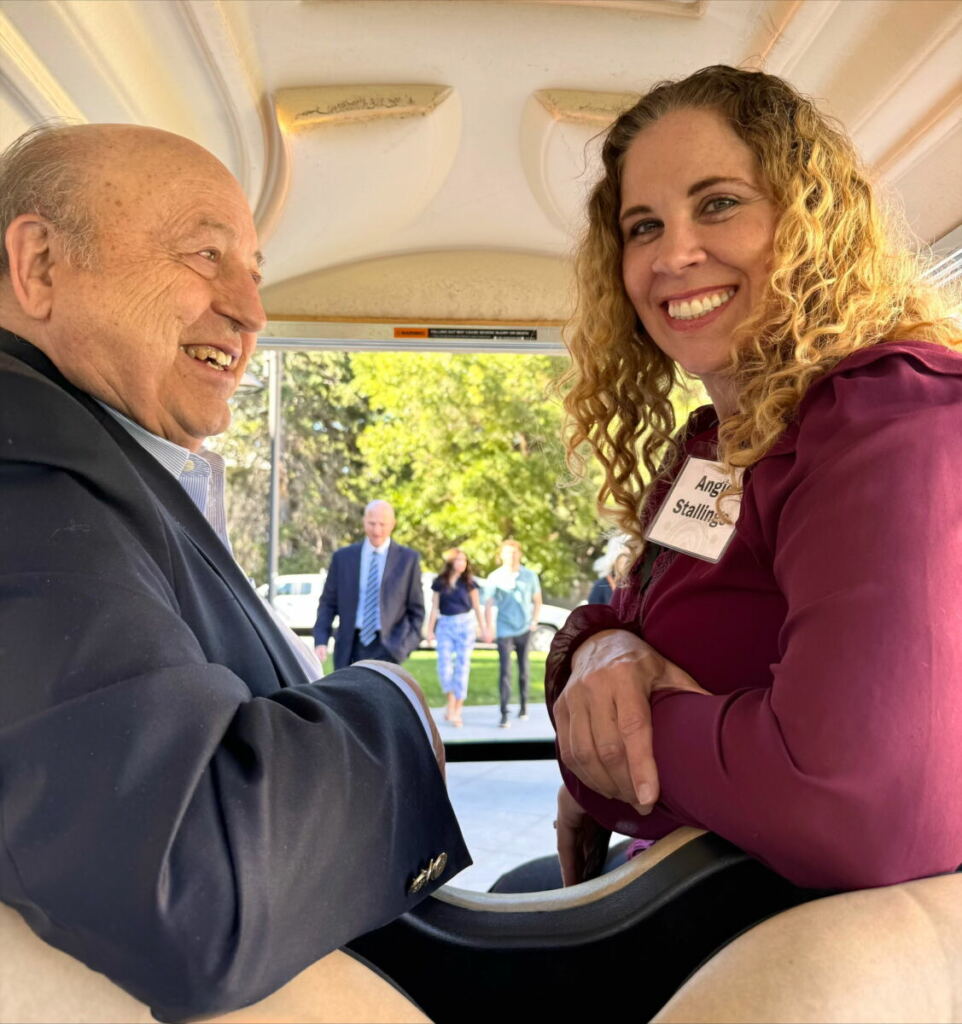Angie Stallings is the new Deputy Commissioner for the Utah System of Higher Education. She’s a familiar face in the world of education in Utah. She joined USHE after supporting K-12 policymaking and program implementation at the State Board of Education. Stallings holds a juris doctorate from the University of Utah and a bachelor’s degree in political science from Utah State University.
She’s applied her legal expertise as associate general counsel in the Office of Legislative Research and General Counsel, focusing on higher education issues, public education, and Utah state tax. She says she’s excited about bringing her K-12 experience to the System and hopes to unite K-12 and higher education through policy and personal connections.
What attracts you to higher education?
I love the difference it can make for students. Higher education made a difference in my life. I attended three universities in Utah, and I loved my experiences at each of them. It wasn’t just the education aspect that I enjoyed; it was also the social and extracurricular activities I participated in. I was on the club tennis team, played softball, was on the debate team, participated in several internships, and studied abroad in Spain.
Of course, the education experiences attracted me to higher education, and so do the opportunities students have to explore different interests that will shape their futures. I’ve always loved higher education, and I’m excited to be back.
What motivated you to take on your role as Deputy Commissioner?
I believe education is the future of Utah, and I love supporting students in my community and across the state. I’m grateful to play a role in this effort, and I’m excited about the opportunity to better align K-12 and higher education.
How will your K-12 experience help your work in the System?
My experience with various K-12 programs will help policymaking and improvements in higher education programs and initiatives. During my time at the Utah State Board of Education, I don’t think we fully took advantage of collaborating with the leaders at the higher education institutions as much as we should have. But over the last year, we have started to work together more closely, in large part due to the leadership of Commissioner Landward and State Superintendent Sydnee Dickson. Admit Utah is a great example of uniting K-12 and Higher Education initiatives.

Were there specific people or events that influenced your career trajectory?
As a student at Utah State, I interned with state Senator Lyle Hillyard, which was very influential for me. It opened my eyes to how a law degree could support my interest in public policy and policymaking. Senator Hillyard encouraged me to go to law school and said I’d be great at it. That internship opened my eyes to what it would be like to work for the Utah State Legislature.
I went on to work for the Utah State Legislature for 10 years, and that experience with Senator Hillyard revealed to me the opportunities in policymaking and education.
What are your priorities for higher education in Utah for the upcoming year? Five years?
I hope to bring my K-12 experience to strengthen collaboration and alignment between K-12 and higher education. Sometimes, when different groups are siloed, they tend tomisunderstand each other’s challenges. For example, some in higher education may overgeneralize and assume K-12 is not preparing students rigorously enough without understanding the impact of the social issues, mental health challenges, lower attendance, or disciplinary concerns schools are navigating.
I hope to provide this perspective and bring more understanding and empathy between the groups.
What do you see (hope?) for the future of higher education in Utah?
I hope for increased access to higher education for students. One initiative I’m excited about is Admit Utah, which was recently launched. I think this program will help students who may not see themselves as college-bound, like first-generation students or those from families where college isn’t a high priority, feel encouraged to pursue higher education. When students receive acceptance at different institutions across the state, it shows them that they have a place in higher education, whether with a degree-granting institution or a technical college.
I believe there’s a place in higher ed for every student in Utah, and I hope that more students will see themselves in higher education. We know that students’ opportunities increase exponentially when they complete a certificate or a degree. I want students to have more open doors and more opportunities.

